Saskatoon powwow a day of healing, honouring survivors
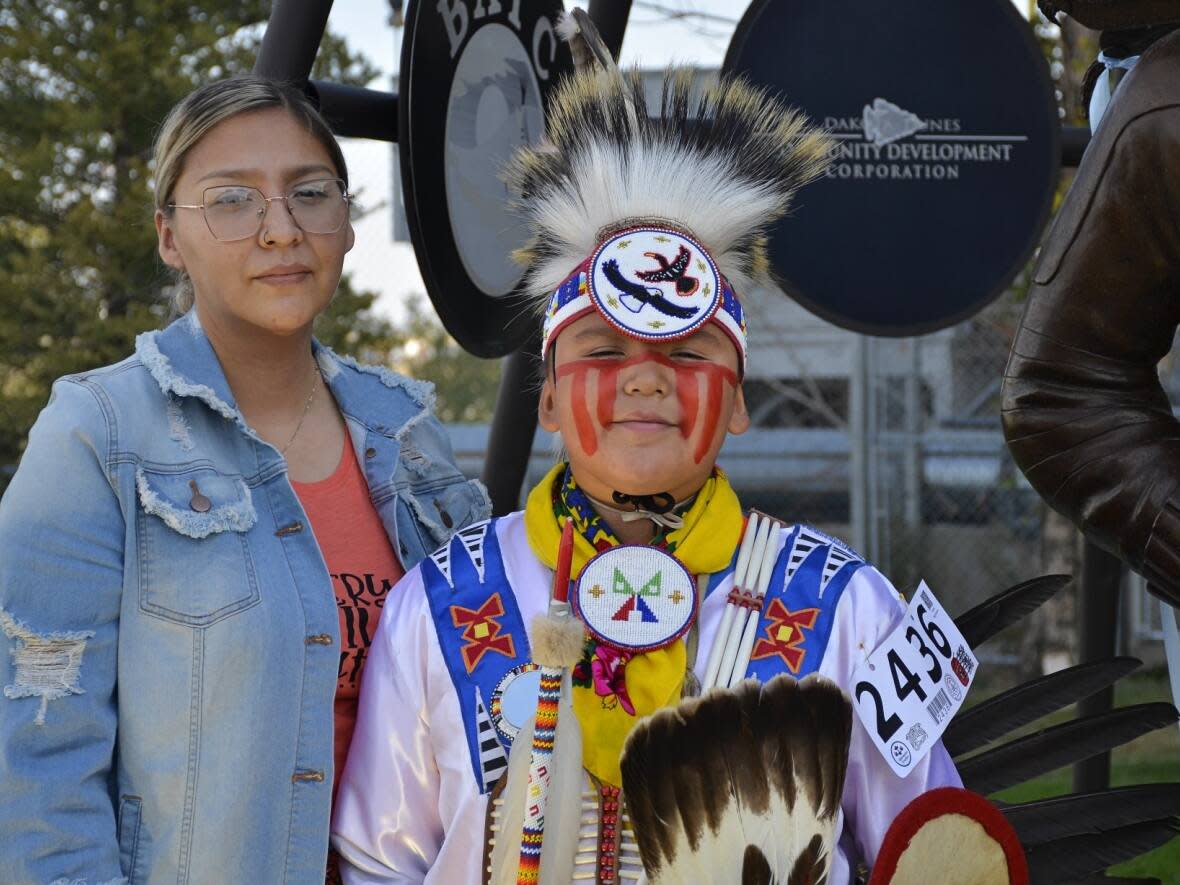
Rezayus Seeseequasis stood proudly Friday in his traditional outfit next to the statue of his great-grandfather Fred Sasakamoose, the first treaty Indigenous player in the National Hockey League.
In May, Sasakamoose's statue was unveiled in front of SaskTel Centre in Saskatoon.
On Friday, his great-grandson was among the people dancing at a powwow inside the arena to honour the victims and survivors of the residential school system in Canada, and their families.
"I feel good, happy [about dancing today]," said Seeseequasis, 10, from the Mosquito Grizzly Bear's Head Lean Man First Nation, a member nation of the Battlefords Agency Tribal Chiefs.
His mother, Raelene Sanderson, is proud of her son.
She told him to pray for his people while dancing, to think about all the children who never got the chance to practise their culture, and to be grateful for the day, she said with tears in her eyes.
"Our people weren't allowed to practise their culture, their language, anything that had to do with our tradition," said Sanderson.
"We're here, my son's here, to be proud of who he is and where he comes from."
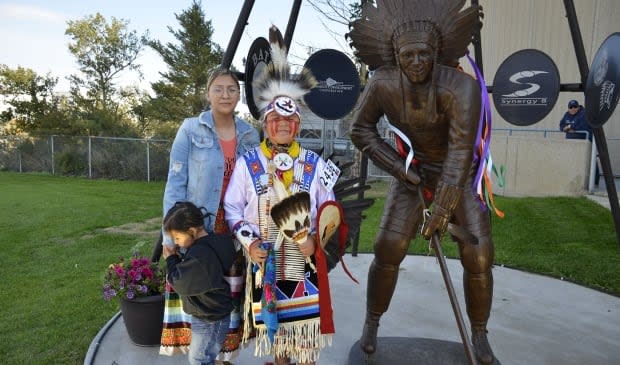
Friday's powwow was part of a whole-day event organized by the Saskatoon Tribal Council on the second National Day for Truth and Reconciliation.
Survivors of residential schools were the special guests at the powwow, but like Sanderson and Seeseequasis, many children and grandchildren of survivors also came to dance, to remember and to honour their ancestors.
"Our grandpas are residential school survivors. My mom was also kidnapped to residential school," said Sanderson.
"We still are here and we're still, you know, resilient and proud to practise the culture where we come from."
Fred Sasakamoose, who died in 2020 at the age of 86, was also a residential school survivor.
Dancing for healing
Autumn Severight, from George Gordon First Nation, came to Friday's powwow to dance in the women's traditional category.
"A lot of the times when people dance, we're dancing for healing," Severight said while getting ready to dance.
"I usually dance jingle dress, and that's the healing style of dance. But that's basically why we're all here. We're all here for dancing and the healing of our people."
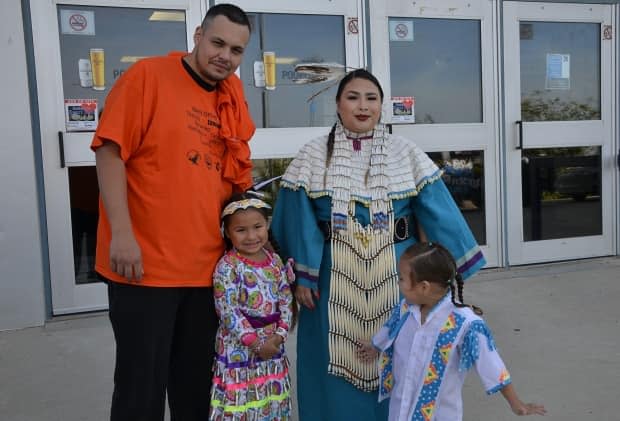
The mother of two has been dancing since she was a little girl.
She dances for those who can't dance, for those who are sick, she said.
"We got to show our babies the good way of life," said Severight. "This is really … the beauty of our culture here. A lot of people don't get to see it."

Severight is glad that there is now a day for truth and reconciliation.
People are still suffering from the intergenerational trauma of residential schools, and a lot needs to be done to overcome issues like poverty and addictions, she said.
"I'm a granddaughter, a daughter of residential school survivors," said Severight.
"When they see us dance, they take a lot of pride in that."
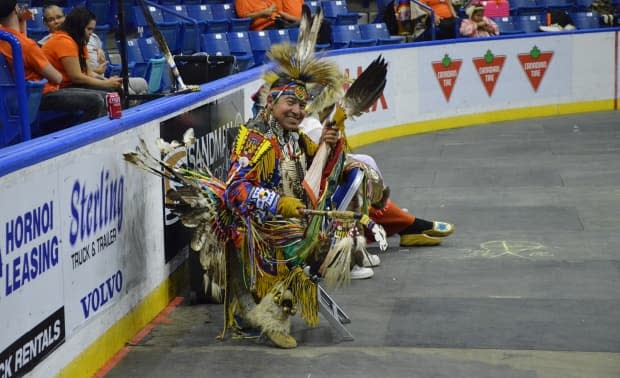
Reconciliation not just a word
Micaela Champagne's grandmother is also a residential school survivor.
As an archeologist, Champagne said she is involved in ground-penetrating radar searches at residential schools.
The young woman wants more people to look at the Truth and Reconciliation Commission's 94 calls to action to see which ones they can apply to their own lives.
"It's so important that people are able to hear the stories that our grandparents have been telling us for generations," said Champagne, whose family is from Canoe Lake Cree First Nation and Buffalo Narrows.
"And now Canada is finally waking up and listening."
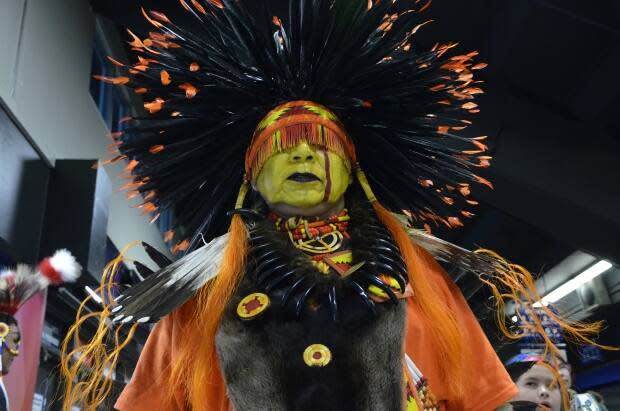
But she has mixed feelings about the National Day for Truth and Reconciliation.
She is still frustrated that it has taken so long for people to make changes and to talk about what happened at residential schools.
"Reconciliation is not just a word," she said. "It's more so action that needs to be done."


